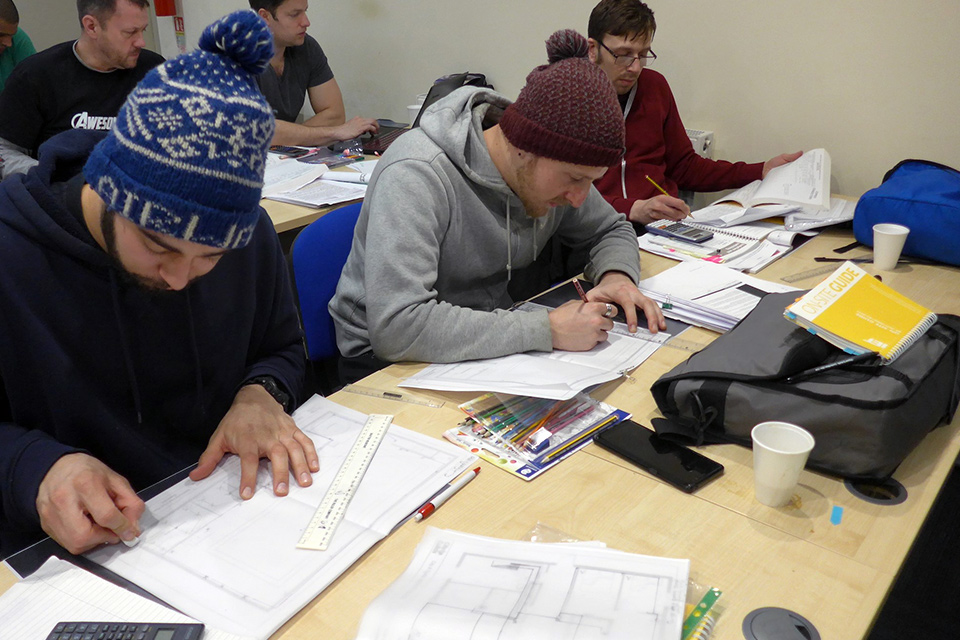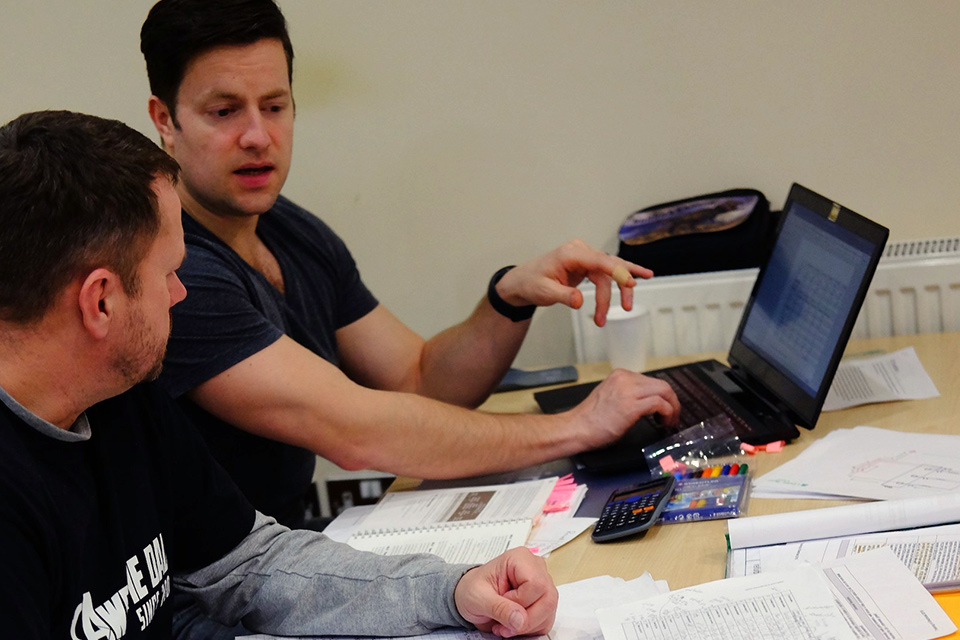Problem-based learning, aka "learning by doing"
20 April 2018

Electrical training involves the acquisition of skills and knowledge, and this can be enhanced by practice and experience. It will take months, sometimes years, to get highly proficient at some of the more challenging practical aspects of the trade, and this can only be done in the workplace, and verified by completion of an NVQ.
Within the classroom and workshop environment, we enhance the training experience for the technical and theoretical aspects of our courses by getting learners to 'learn by doing' - whether that's workshop tasks on our
Level 2 2365 course, or practice at inspection and testing using the large range of testers and kit available in the Centre on the
Level 3 2365 course.
One of the most enjoyable classroom-based activities our learners do whilst studying for the Level 3 qualification is the Electrical Systems Design exercise. Recently revised and enhanced by City & Guilds, this fairly open-ended exercise takes place over about 30 hours of classroom time, plus some independent research at home. The time is split in a very flexible way between knowledge delivery - me getting the ideas and methods across to the learners, often using examples - and the students working on the design problem themselves. It's very interactive and adaptive: we make sure we cover everything required, but we often focus on areas of interest to the class, whether it's proposed changes in the IET Wiring Regulations, or earthing systems for sheds.

If you want to get all pedagogical, this is 'problem-based learning,' but it's really just learning by doing! You know you really understand something, when you can do it yourself. And the great thing is, you're not on your own. The C&G Assessor Guidance for this exercise specifically encourages discussion and collaboration: 'Candidates should be encouraged to discuss ideas relating to the design of the electrical installation but they must demonstrate an ability to undertake an acceptable electrical design... using their own knowledge and understanding.'
It's wonderful to see the solutions and ideas the learners come up with: both tutors and learners really get into this part of the course, and we certainly get a lot out of it.
Dr Steve Sharples MIET

Lecturer / Electrical Assessor
Share this article